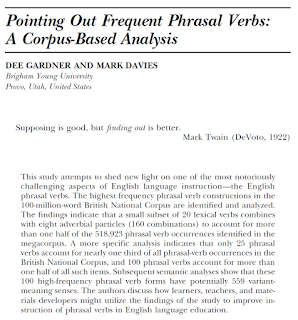DEDICATION
In loving memory of my dearest brother
Karon (1989 - 1999)
 |
| Locky's English Playground App v1.0.0 (alpha) Image from Locky's English Playground |
Whatsoever a man soweth, that shall he also reap. -- King James Bible
Locky's English Playground has marked yet another milestone yesterday after I successfully created my first Android app! Self-learning is never easy, but has always been a process I enjoy very much! After more than a month of effort and perseverance, I can now tell the world that as long as you continue to work hard, you will see your reward! And my reward, of course, is seeing the birth of this baby!
Ask, and it shall be given you; seek, and you shall find --
King James Bible
I must thank all other app programmers who have asked questions on stackoverflow.com in the past because their questions are the key to my success. Without them asking similar questions, I would never have been able to solve my problems. This has proven again that if anyone wants to succeed in anything, asking questions is always the best method.
You may also want to swipe to the left to find the same menu.
The menu list is also clickable, so once you have selected a category / tag, say "Animals", it will take a few second to download the images from the webpage and then the 6 most recent blog posts will be displayed on the cover page.
bb Sharky will be helping out by showing his face to promote shark conservation if the image of that post does not exist. Hope the kids will love this idea and learn to protect this amazing creature as well as the rest of the marine animals.
Since my app is far from perfect, I will call it Locky's English Playground App (Alpha) and will let it be tested by my blog readers and other app developers before putting it on Beta testing phase. Once the app is stable enough and with the documentations ready, I will submit the app together with the documentations to Google Play and then you will be able to get updates much more easily.
Installation:
Because this app is not downloaded from Google Play, your phone will prompt you with a message telling you that you need to allow installation of an app from unknown source. Don't panic, just look at Step 1 of the images above and check Unknown sources then press OK when you see a pop-up. That's it!!!
Interface:
When the app is loading, you will see the bar and the logo on top, and when the loading is done, you will see the cover page, which has 3 clickable images.
Because this app is not downloaded from Google Play, your phone will prompt you with a message telling you that you need to allow installation of an app from unknown source. Don't panic, just look at Step 1 of the images above and check Unknown sources then press OK when you see a pop-up. That's it!!!
Interface:
When the app is loading, you will see the bar and the logo on top, and when the loading is done, you will see the cover page, which has 3 clickable images.
 |
| Cover page Image from Locky's English Playground |
Swiping to the right and you will see the categories / tags from Locky's English Playground.
 |
| Image from Locky's English Playground |
You may also want to swipe to the left to find the same menu.
 |
| Image from Locky's English Playground |
 |
| 6 latest will be displayed for each category Image from Locky's English Playground |
Don't forget to visit bb Sharky @ Locky's English Playground
http://lockyep.blogspot.hk/2013/01/animals-doing-my-part-for-sharks.html
and "Like" bb Sharky @ Facebook
https://www.facebook.com/bbSharky
and "Like" bb Sharky @ Facebook
https://www.facebook.com/bbSharky
and of course, say "NO" to shark fin products.
When you click on any one of the images, the respective blog post will be loaded and you will be taken directly to the blog post, just like the image below.
Please offer your precious comments on this app such that I can improve on this app and make your learning experience more interesting and meaningful! (There is a comment section below this post!)
Resources:
Locky's English Playground App v1.0.0 (alpha) @ Locky's English Playground
https://www.dropbox.com/s/1f5z4fnkftzlrc0/LEPv1.0.1.apk
[FREE][APP] Locky's English Playground v1.0.1 Alpha @ XDA-Developers
http://forum.xda-developers.com/showthread.php?p=44202301#post44202301
Stack Overflow
http://stackoverflow.com
As you sow so shall you reap @ The Phrase Finder
http://www.phrases.org.uk/meanings/48500.html
bb Sharky @ Locky's English Playground
http://lockyep.blogspot.hk/2013/01/animals-doing-my-part-for-sharks.html
bb Sharky @ Facebook
https://www.facebook.com/bbSharky
 |
| Image from Locky's English Playground |
Please offer your precious comments on this app such that I can improve on this app and make your learning experience more interesting and meaningful! (There is a comment section below this post!)
Also, thanks in advance to the XDA Developers for offering me comments and feedback.
Locky's English Playground App v1.0.0 (alpha) @ Locky's English Playground
https://www.dropbox.com/s/1f5z4fnkftzlrc0/LEPv1.0.1.apk
[FREE][APP] Locky's English Playground v1.0.1 Alpha @ XDA-Developers
http://forum.xda-developers.com/showthread.php?p=44202301#post44202301
Stack Overflow
http://stackoverflow.com
As you sow so shall you reap @ The Phrase Finder
http://www.phrases.org.uk/meanings/48500.html
bb Sharky @ Locky's English Playground
http://lockyep.blogspot.hk/2013/01/animals-doing-my-part-for-sharks.html
bb Sharky @ Facebook
https://www.facebook.com/bbSharky




















